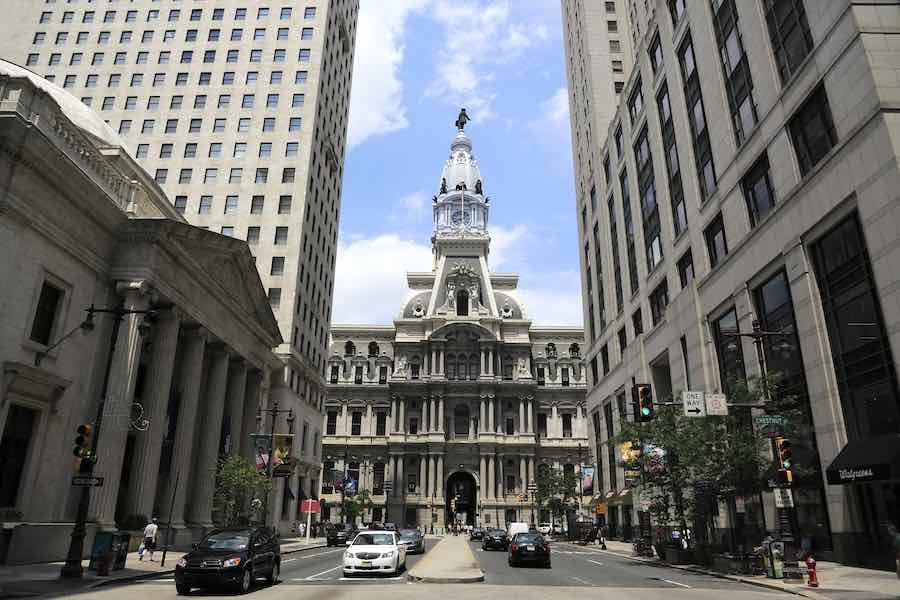Progressive Backlash, and the Establishment Strikes Back: Four Major Takeaways From Tuesday’s Mayoral Primary
Black candidates winning big, the establishment flexing, and tough losses for several progressives were the highlights of a consequential election.

Philly’s mayoral primary was a jaw-dropper. / Photograph via Getty Images
On Tuesday, movements collided, diversity thrived, and a new political queen-maker officially arrived.
The results of the 2023 primary in Philadelphia were pretty damn historical, including Democratic nominee Cherelle Parker winning her mayoral primary with a third of the vote. Other outcomes were a total WTF? In addition to the pronounced influence of the Democratic City Committee (the projected City Council at-large results have the DCC’s fingerprints all over them), there’s a lot more to unpack. Here are four major takeaways from what feels like the most jaw-dropping mayoral primary in a generation.
Black candidates dominated across the field.
Four citywide positions and three competitive Court of Common Pleas seats are now set to be occupied by the highest vote-getters in the Democratic primary — and they all happen to be Black candidates.
- Cherelle Parker has won the Democratic nomination for Philadelphia mayor, positioning her to become the first Black woman and first woman, period, to win the mayor’s office here. The 99 prior mayors have all been men.
- For the first time since the 2015 primary when Derek Green received the most votes for City Council at-large, a Black candidate was the leading at-large vote-getter. In fact, Black incumbents Isaiah Thomas and Katherine Gilmore Richardson were the two top vote recipients.
- Though her office is facing ongoing scrutiny, incumbent Rochelle Bilal is poised to win reelection in the hotly contested Sheriff’s race.
- In a race for Court of Common Pleas judgeships, Black judicial candidates Natasha Taylor-Smith, Tamika Washington and Samantha Williams were the top three vote recipients in a race with 10 open seats.
Party endorsements were gold for first-time candidates and incumbents.
The establishment’s thumb was felt throughout the various races. So far, Democratic City Committee-endorsed candidates in most City Council races have won, with the very close battle between incumbent Cindy Bass and Seth Anderson-Oberman for the 8th District Councilmanic seat yet to be called at press time. Row-office candidates Bilal, Christy Brady and John Sabatina appear to have won for Sheriff, Controller and Register of Wills, respectively. Even eight out of 10 of the party-endorsed Court of Common Pleas judicial candidates won. In other words, in an election with a low voter turnout, party endorsements are effective.
The local progressive movement took an electoral hit.
After previous victories that put the establishment to shame, progressive coalitions lost big on Tuesday night. Several candidates endorsed by the likes of Reclaim and the Working Families Party lost to Democratic City Committee-backed opponents. Progressive support for Helen Gym, Amanda McIllmurray, Alexandra Hunt and Erika Almirón wasn’t enough to take them over the finish line in their respective races. Were the losses the result of an overcrowded field of candidates? Are voters simply not sold on the ambitious platforms these candidates have been campaigning on?
A new queen-maker is born.
Ever since his political coalition took a big hit during the 2022 Democratic primaries, labor leader Ryan Boyer has been plotting an epic comeback. On Tuesday night, he gave the victory speech for his preferred mayoral candidate, Parker (who had been abruptly hospitalized for a dental matter), and his comeback was complete. As one of the co-founders of the Black Leadership PAC, Boyer (who replaced “Johnny Doc” Dougherty as the head of the Philadelphia Building Trades and became its first Black leader) helped Parker, Thomas, Gilmore Richardson and Nina Ahmad win their respective seats. By taking the big risk early, Boyer has emerged as something of a queen-maker — one who likely just sealed the deal for Philadelphia’s first woman mayor.


